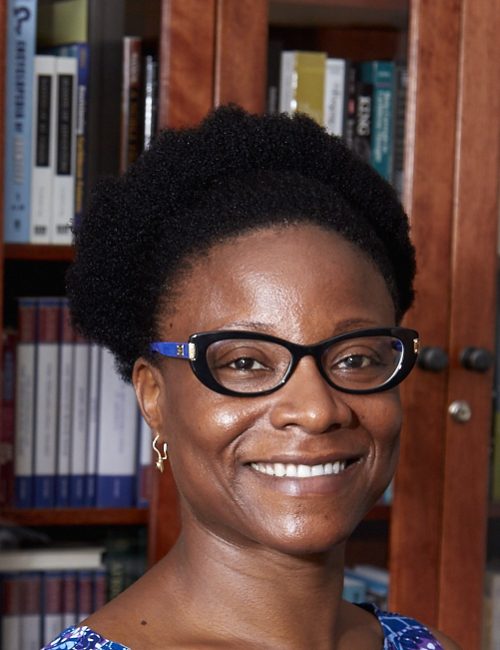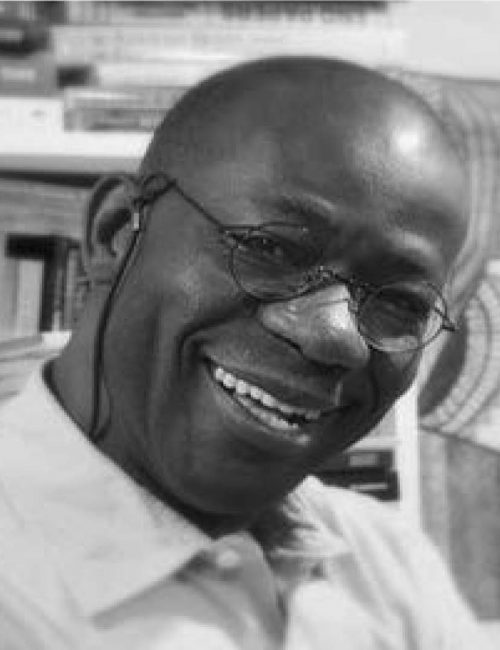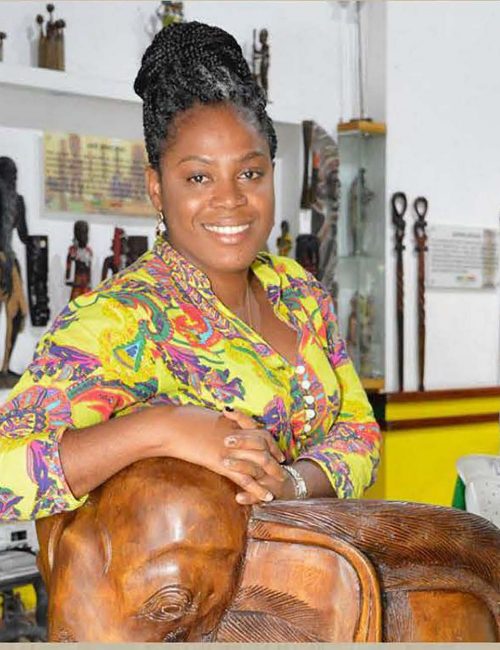2018-2019 Africa~Diaspora Forum
Maya Trotz (U. of South Florida) and Kevon Rhiney (Rutgers U.)
April 11, 2019

Caribbean in the Flux of Change – People, Land, Air & Sea
Caribbean People Centered Resilient Futures
Maya Trotz, University of South Florida
Resilience, Build Back Better, Climate Adaptation – commonly used terms in the Caribbean region today for new climate financing mechanisms like the Green Climate Fund (GCF). Having a job that puts food on the table gets packaged as investments in workforce development with a particular emphasis on gender, improved irrigation for agriculture, value add nutritional crops, and improved livelihoods. Restoring a coral reef devastated by an earthquake and/or hurricane becomes a coastal resilience project to increase biodiversity, flood protection, science literacy on climate change, the number of women licensed as tour guides, and improve livelihoods. As the region plans to raise the funds and spend billions of dollars on infrastructure for the provision of food, water, electricity, transportation etc., designing the projects for that investment provides opportunities for meaningful community engagement, including inter island and diaspora relations. Using projects that I have worked on in the Caribbean, this talk discusses opportunities and challenges to build more community focused solutions and management practices for critical resources. These projects range from 1) Water Sector Resilience for Sustainability in Barbados, a GCF funded project to the Caribbean Community Climate Change Center for the Barbados Water Authority, 2) Reefs of Hope, a $100 million dollar 100&Change proposal, and 3) a sustainability challenge for high school students in 12 Caribbean countries, the Sagicor Visionaries Challenge.

Caribbean in the Flux of Change – People, Land, Air & Sea
Battered States and ‘Resilient’ Futures? A Critical Reflection on the Caribbean post Irma-Maria
Kevon Rhiney, Rutgers University
Roughly one month after hurricanes Irma and Maria battered the Caribbean nation of Dominica, Roosevelt Skerrit, the Dominican Prime Minister asserted, “we have a unique opportunity to be an example to the world, an example of how an entire nation rebounds from disaster and how an entire nation can be climate resilient for the future.” Skerrit’s message relays a common theme emerging throughout the Caribbean after the devastating 2017 hurricane season, that saw two of the most powerful hurricanes in recorded history wreaking havoc across the region. Though Irma and Maria serve as a stark reminder of how vulnerable the Caribbean is to extreme climate events, there seem to be a growing emphasis on the opportunities presented by the post-hurricane situation. Ideas around resilience and ‘building back better’ are increasingly being used to justify recovery efforts aimed at rethinking existing development paradigms. At the same time, events that have unfolded since Irma and Maria have revealed just how much these ‘natural’ disasters intertwine with underlying issues of non/sovereignty and uneven development. In this talk, I demonstrate how the current post-hurricane situation has become a highly contested and politicized post/colonial terrain, and offer some initial thoughts on how we might best understand these recent developments. This includes a foregrounding of the historical legacies driving modern-day vulnerabilities across the region, and a rethinking of ‘resilience’ as a precondition for securing sustainable Caribbean futures under a changing climate.
Rethinking Colonial Violence in Guyana: Transnationality, Diaspora and Indigeneity
January 31st, 2019

Alissa Trotz
Location:14A Washington Mews 1st floor
Date: January, 31, 2019
Time: 12:30pm-2:00pm
This talk reflects on what a transnational feminist analytic frame might offer in our attempts to comprehend and reckon with the devastating consequences of political violence in the Caribbean. I take this up in relation to the collapse of a multi-racial, anti-colonial political movement in colonial Guyana, and the descent into racialized mistrust between African and Indian Guyanese that came to a violent climax in the 1960s on the eve of independence. Drawing on research into how the events played out in an industrial and multi-racial bauxite mining town, I explore how place and landscape are sculpted by a longer transnational trajectory of violence, and suggest that a frame that grapples simultaneously with the entangled itineraries of diaspora and indigeneity offers important clues for rethinking colonial and contemporary violence in Guyana through attention to these multiple histories of sedimentation.
Alissa Trotz is Associate Professor of Women and Gender Studies, and Caribbean Studies at New College, University of Toronto, where this year she received the President’s Teaching Award, the highest recognition for teaching excellence at the University of Toronto. She is also Associate Faculty at the Dame Nita Barrow Institute for Gender and Development Studies at the Cave Hill Campus of The University of the West Indies.
Black Women and Land Loss
November 14, 2018

Dr. Keisha-Khan Y. Perry’s talk focuses on on the political work of poor black women in struggles for land and housing rights in cities throughout the Americas, this presentation examines the gendered racial logic of spatial dispossession. I illustrate how these women confront the violence of urban redevelopment that includes mass evictions, housing demolitions, and militarized policing. I emphasize that black women are key political protagonists, mobilizing at the grassroots and exploding the conversation on racial and gender violence from North America to the Southern Cone. Moreover, they understand black dispossession (loss of land/territorial rights, access to adequate housing, gentrification) to be a form of anti-black violence that shapes their gendered experiences and political formation in unique ways. This presentation represents my ongoing call for black feminist scholars to return our analyses to the material issues that are at the heart of women-led grassroots struggles and that informed black feminist thought in the first place.
Keisha-Khan Y. Perry is currently an Associate Professor of Africana Studies at Brown University where she specializes in race, gender and politics in the Americas, urban geography and questions of citizenship, intellectual history and disciplinary formation, and the interrelationship between scholarship, pedagogy and political engagement. Her first book, Black Women against the Land Grab: The Fight for Racial Justice in Brazil (fall 2013, Minnesota Press), is an ethnographic study of black women’s activism in Brazilian cities. She currently has three book projects under way: 1) Evictions and Convictions: The Gendered Racial Logic of Black Dispossession in New York City; 2) The Historical Paradox of Citizenship: Black Land Ownership and Loss in the Americas; and 3) Anthropology for Liberation: Research, Writing and Teaching for Social Justice.
Cartooning the Rwandan Genocide
Propaganda, Pleasure, Evil, Interest,
October 10, 2018

Dr. Tejumola Olaniyan will present his paper, “Cartooning the Rwandan Genocide: Propaganda, Pleasure, Evil, Interest.” At this forum, This paper asks: what is the role of mass propaganda in the commission of mass-scale evil such as genocide? If the latter is impossible without the former, and pleasure and the pleasurable are at the heart of every successful propaganda, does it mean that pleasure and evil have a relationship? What is the name of that relationship? And, yes, what if political cartoons, the typically radical form with its caustic humor, are at the heart of the propaganda? What can resistant cartoonists do?
Dr. Tejumola Olaniyan is the Louise Durham Mead Professor of English, African, and African Diaspora cultural studies at the University of Wisconsin-Madison. His publications include Scars of Conquest/Masks of Resistance: The Invention of Cultural Identities in African, African American and Caribbean Drama (Oxford UP, 1995), and Arrest the Music! Fela and His Rebel Art and Politics (Indiana UP, 2004). He is also editor or co-editor of Taking African Cartoons Seriously (MSU Press, 2018); State and Culture in Postcolonial Africa: Enchantings (Indiana UP, 2017); Audible Empire: Music, Global Politics, Critique (Duke UP, 2016); African Literature: An Anthology of Criticism and Theory (Blackwell, 2010); and African Drama and Performance (Indiana UP, 2004). He runs the web encyclopedia, africacartoons.com.
This event is co-sponsored by NYU’s Center for the Study of Africa and the African Diaspora (CSAAD) and the Department of History.
Is Political Forgiveness Racialized?
The Story of FARC's Black Christ as Reconciliation Offer
to Boyá-Columbia
September 26, 2018

Aurora Vergara Figueroa is the director of the Afrodiasporic Studies Center ( Centro de Estudios Afrodiaspóricos) at Icesi University. She is an Afrocolombian who holds a PhD from the Sociology Department of the University of Massachusetts Amherst, where she concentrated on the sociological study of Afrocolombians deracinated from the Colombian Pacific coast and the long durée of land dispossession in the world-system. Also she develops research on the Afrodiasporic feminist movement in Colombia. She is the recipient of the LASA/OXFAM America 2014 Martin Diskin Dissertation Award and is currently working with Doctor Carmen Cosme Puntiel on a co-edited volume tentatively titled: Challenging Enslavement: Black Women’s Strategies of Resistance in Nueva Granada (Colombia), Venezuela, Brazil, and Cuba 1550-1900.
Her main research interests are: Feminist Critique, African Diaspora Studies, Sociological Theory, Critical Race Theory, Political Economy, Political Sociology, and Comparative
